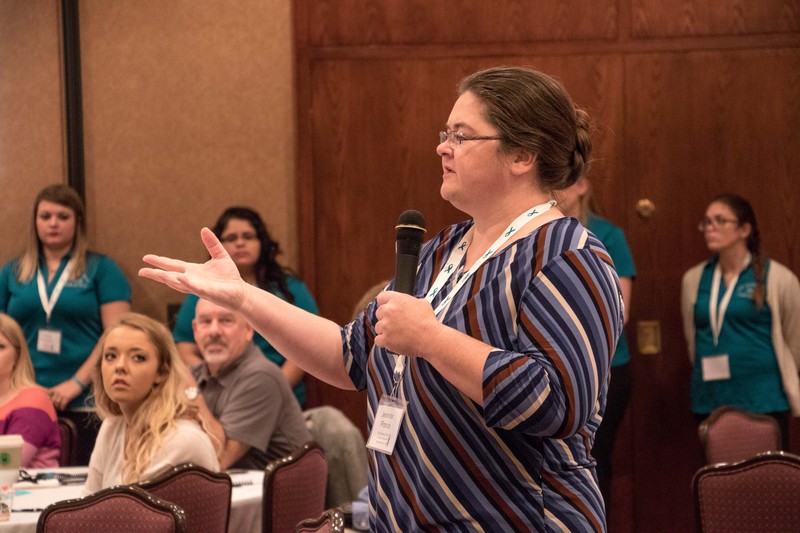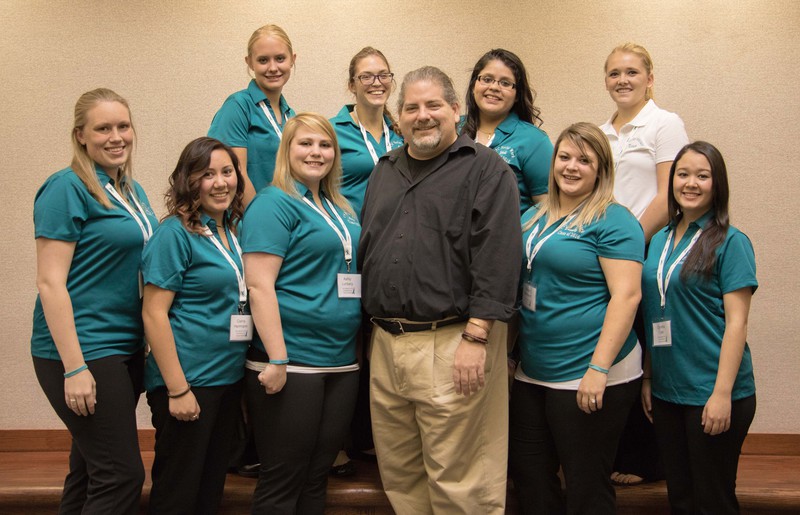Sexual assault conference explores timely topic

CHADRON – As the nation’s attention has been drawn to the concern that one of five female college students will be assaulted within her college career, Chadron State College has increased awareness about sexual assault prevention.
In February, CSC’s theatre department presented “Extremities” with the intention of starting a conversation about reducing and reversing the national statistic.
Wednesday, the CSC Social Work senior class continued the conversation by presenting “Not Asking For It: A Workshop on Sexual Assault.”
Several audience members including Anna Owen of Burwell, Nebraska, who also produced three thematic vignettes featuring CSC theatre majors during the conference, said although the focus is on women as victims, women can be the aggressors and men can be the victims in various relationships.
Keynote speaker Dr. Brian Van Brunt, a professor, former emergency medical technician and family therapist, gave presentations on consent, bystander intervention and care for survivors.
Other speakers covered topics such as the role of school officials, law enforcement and medical professionals when a sexual assault is reported.
Julie Eckland, who earned her bachelor’s degree in social work from CSC in 1991, commended the senior class for organizing a refreshing and hopeful professional conference on a difficult topic.
“Their focus is to inform and strengthen our communities’ abilities to make positive changes to heal the harm that victimization causes,” she said.
Eckland is a Nebraska registered service provider and also serves on the board of directors of the Nebraska chapter of the National Association of Social Workers.
Brunt shared several online videos about consent including one by Laci Green, a YouTube video-blogger, public sex educator and feminist activist. He offered his own analogy to explain consent.
“Consent is like inviting someone into your house. You give them a seat on the sofa and ask if they would like a beverage or snack. If, however, you return from the kitchen to find they are rifling through your bedroom or medicine cabinet, that is a violation of trust because you did not consent to it,” he said.
If alcohol or a power or authority differential is involved, determining coercion compared to consent can become more complicated, Van Brunt said.
Sonja Dressel, Project Strive/TRiO counselor, discussed forms of sexual coercion, harassment and intimidation perpetrated through social media. She also mentioned Circle of 6, an app that allows those who feel unsafe to instantly message six friends on a mobile device and be located through GPS technology.
Dressel outlined prudent behavior for students who do decide to meet a person face-to-face after an online conversation.
“Go during daylight, when you are sober, be sure you have transportation available so you can leave the location if needed, don’t go alone and be sure both parties agree upon the expectations for the meeting,” she said.
Regarding bystander intervention, Van Brunt instructed the audience members to be observant of their surroundings and then decide to either be direct, delegate or create a distraction to defuse a potentially harmful or criminal situation. These three approaches are part of Green Dot, a national program designed to reduce power-based personal violence.
He also shared the “Snack Man” video of an incident on a New York City subway as a classic, low-key example of bystander intervention.
In his final session, Van Brunt walked those in helping roles through the best ways to reassure a victim between the incident and the arrival of law enforcement or rescue personnel.
“Someone on the team needs to maintain the lit candle of hope," he said. “Survivors need to know you are going to help them and that they are going to get better. Don’t panic, even if you feel like it. Offer them creature comforts. Charge their phone, ask someone to take care of their car and try to distract them from making bad decisions."
Van Brunt closed by urging attendees to take action. He emphasized that the New Zealand-produced video, “Who Are You?” is his favorite message about prevention.
“Whatever reached you the most, do something about it. All these videos are on YouTube. Share them. Please let this be the beginning of a movement,” he said.
Category: Campus Events, Campus News, Social Work

